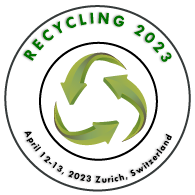INDUSTRIAL WASTE RECYCLING
Recycling your industrial waste, whether hazardous or non-hazardous, has numerous advantages for your company. Recycling saves you money by reducing the expenses of discarding unneeded materials and byproducts. Recycling can provide you with a consistent and reliable source of income. Recycling can help your organisation meet its environmental goals while also improving its reputation with local governments and the general public.Let's have a look at some of the strategies that can be employed to accomplish this:
1.Breaking down the waste:
Industrial composting systems are becoming more popular as an environmentally beneficial alternative to landfills. Microorganisms are employed to break down biodegradable organic waste into usable goods. In some places, the by-product of this procedure is also used as an alternative fuel. Composting is now practised in most Western countries, and it is required in a few of them.
2.Burn it to make it:
Some materials can be melted down to create new items. Take plastic bottles, for example: they can be turned into clothing-grade polyester! The problem with this procedure is that the amounts of undesirable compounds rise with each consecutive process. This process is frequently used to recycle industrial transformers, oil filters, and huge containers.
3.Hot treatment:
To some extent, most waste materials contain energy. By heating the waste at high temperatures with restricted oxygen availability, this energy can be utilised for cooking, heating, and creating steam. The energy content can also be converted into alternative fuels using this form of thermal treatment.
4.Harnessing the Harmful Gas:
Although recycling encourages people to avoid using landfills altogether, landfills are still extremely widespread because dumping rubbish in an abandoned location is so cheap. As a result, the hazardous landfill gas is caught and used to generate fuel or electricity as part of resource recovery.
5.Reclaiming the Waste:
Waste is treated and usable material is removed during reclamation. Mercury, for example, can be collected from damaged thermometers. Batteries and paint can both be used to recycle lead. Many previously used solvents, such as acetone, can be distilled and reused.
Related Conference of INDUSTRIAL WASTE RECYCLING
INDUSTRIAL WASTE RECYCLING Conference Speakers
Recommended Sessions
- ADVANCED RECYCLING: PHYSICAL & CHEMICAL
- BIO- ELECTROCHEMICAL TREATMENT SYSTEM
- BIO-PLASTICS
- BIOREMEDIATION
- CHALLENGES IN COLLECTION & SEGREGATION OF PLASTICS WASTE
- CHEMICAL WASTE RECYCLING
- CIRCULAR ECONOMY FOR ELECTRIC VEHICLES (EV) BATTERIES
- CIRCULAR PLASTICS FOR PACKAGING
- E-WASTE
- FOOD AND AGRICULTURAL WASTE RECYCLING
- INDUSTRIAL WASTE RECYCLING
- METAL RECYCLING
- PAPER RECYCLING
- PLASTICS RECYCLING: CHALLENGES AND OPPORTUNITIES
- SOLID WASTE MANAGEMENT
- TECHNOLOGY & INNOVATION IN PLASTICS RECYCLING
- THERMAL WASTE RECOVERY
- WASTE RECYCLING AND MANAGEMENT
- WASTE WATER TREATMENT

